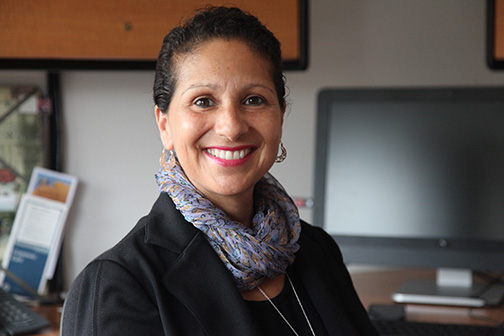
San Diego State and the University of California, San Diego have teamed up to create the nation’s first doctoral program for substance abuse prevention.
Approved in January, the Joint Doctoral Program in Interdisciplinary Research on Substance Abuse aims to identify risk factors such as alcohol and drugs and create methods to counteract them. Accepted students will conduct research at both the SDSU School of Social Work and the Division of Global Public Health within UCSD’s School of Medicine.
Steffanie Strathdee, co-director of the doctoral program and director of the UCSD Global Health Initiative said the program is the first of its kind.
“Given that substance use has a growing health and societal impact in the U.S. and globally, this program could not come at a better time,” she said.
Maria Luisa Zuñiga, SDSU co-director, believes the combined efforts will allow students to view substance abuse from both a clinical and social perspective. With access to analytical tools to conduct research, practitioners in the field and communities affected by substance abuse, students will have a comprehensive experience, she said.
“It really is a beautiful fit between practice and research that we’ve drawn from both institutions,” Zuñiga said.
Every year the program will accept and pay for the tuition, fees and a training stipend for four students to finish their research within four years. Since it is an interdisciplinary doctoral program, graduate students from any related social or behavioral science program — including anthropology, social work, public health, psychology, sociology, and economics — can apply.
“We would look for individuals who have their life passion to continue working in an area of substance use and who also, of course, as with any graduate program, got their GRE’s on par,” Zúñiga said.
The Graduate Record Examination is a standardized test most colleges and universities require graduate school applicants to complete.
Candidates will also be selected based on their previous research experience, coursework and overall GPA.
The directors hope to implement the program’s findings not only on campus, but also nationally and internationally. Zuñiga is particularly inspired to take advantage of San Diego’s proximity to the Mexican border. Her research in Latin America has supported that migration can make individuals vulnerable to substance abuse. With this new joint program, the idea is to discover more connections between substance abuse and external factors such as immigration, she said.
“You cannot look at one thing without considering other aspects of how individuals’ behaviors are shaped, how their lives are shaped, the things that happened as they were youth and knowing that substance use is never by itself, its always got something happening with it,” Zuñiga said.
Although Zuñiga began working with the program a year and a half ago, she said her colleagues first conceived the idea more than 20 years ago. She also emphasized her gratitude toward the work of other researchers whose groundwork made the doctoral program possible.
The application process is underway and the program is receiving support at all levels, up to the Cal State University Chancellor’s Office. The program will begin this fall.









